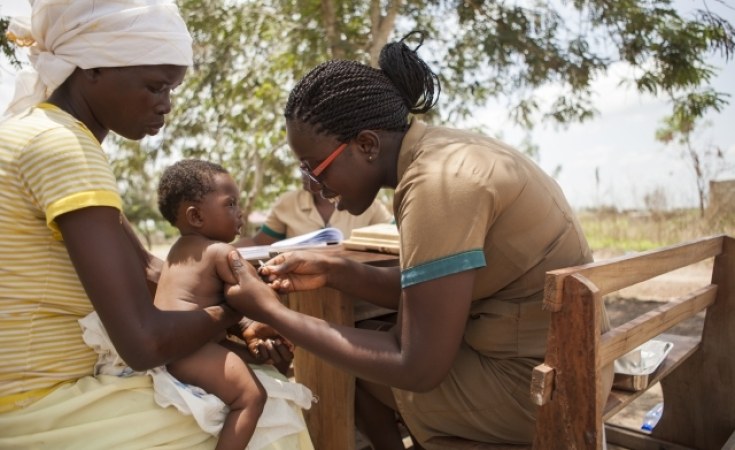Melinda Gates says everyone wins - and lives are saved - when teenage girls are in school rather than having babies. Excerpted from the 2014 Gates annual letter, published by the Bill & Melinda Gates Foundation:
Girls who marry in their mid-teens tend to start getting pregnant earlier and therefore have more children. They usually drop out of school, which limits their opportunities to learn about their bodies, sex, and reproduction — and to gain other kinds of knowledge that helps them improve their lives.
And it's typically very difficult for adolescent brides to speak up in their marriages about their desire to plan their families. I just traveled to Ethiopia, where I had a long conversation with young brides, most of whom were married at 11 years old. They all talked about wanting a different future for their children, but the information they had about contraceptives was spotty at best, and they knew that when they were forced to leave school their best pathway to opportunity was closed off.
In fact, when girls delay marriage and stay in school, everything changes. In a recent study of 30 developing countries, women with no schooling had three more children on average than women who attended high school. When women are empowered with knowledge and skills, they start to change their minds about the kind of future they want.
I recently spent an afternoon with a woman named Sadi Seyni, who scratches out a living for five children on an arid farm in a desert region of Niger. She didn't know about contraceptives when she got married as a teenager.
Now she knows, and she's spacing her pregnancies several years apart, to protect her health and the health of her newborns. I visited the place where she learned about family planning: her village's well, where women go to talk. And talk. And talk.
While we were telling stories, a young bride came to get water. Through a translator, this girl told me that her pregnancies were "God's will" and therefore out of her control. Sadi suggested that as long as this girl keeps coming to the well and listening, she'll change her view over time. Even the informal education that happens when a little knowledge spreads among friends transforms the way people think about what's possible.
It is important to note that the desire to plan is only part of the equation; women need access to contraceptives to follow through on their plan. Sadi lives a stone's throw away from a health clinic, but it doesn't carry the contraceptive injections she prefers. She has to walk 10 miles every three months to get her shots. Sadi is incensed, as she should be, about how difficult it is for her to care for her family.
Many women like Sadi have no information about planning their pregnancies in a healthy way — and no access to contraceptives.
More than 200 million women say they don't want to be pregnant but aren't using contraceptives. These women are being robbed of opportunities to decide how to raise their families. And because they can't determine how many children to have or when to have them, they also have a harder time feeding them, paying for medical care, or sending them to school. It's a vicious cycle of poverty.
n the other hand, the virtuous cycle that starts with basic health and empowerment ends with not only a better life for women and their families, but with significant economic growth at the country level. In fact, one reason for the so-called Asian economic miracle of the 1980s was the fact that fertility across Southeast Asia declined so rapidly. Experts call this phenomenon the demographic dividend.
As fewer children die and fewer are born, the age structure of the population gradually changes...
Eventually, there's a bulge of people in their prime working years. This means more of the population is in the workforce and generating economic growth. At the same time, since the number of young children is relatively smaller, the government and parents are able to invest more in each child's education and health care, which can lead to more economic growth over the long term.
These changes don't just happen by themselves.
Governments need to set policies to help countries take advantage of the opportunity created by demographic transitions. With help from donors, they need to invest in health and education, prioritize family planning, and create jobs. But, if leaders set the right strategic priorities, the prospect of a virtuous cycle of development that transforms whole societies is very real.
The virtuous cycle is not just development jargon.
It's a phenomenon that millions of poor people understand very well, and it guides their decisions from day to day. I have the privilege of meeting women and men in poor countries who commit the small acts of love and optimism — like going without so they can pay their children's school fees—that propel this cycle forward. The future they hope for and work hard for is the future I believe in.
In this version of the future, currently poor countries are healthier, richer, and more equal — and growing sustainably...
Saving lives doesn't lead to overpopulation. In fact, it's quite the opposite. Creating societies where people enjoy basic health, relative prosperity, fundamental equality, and access to contraceptives is the only way to secure a sustainable world. We will build a better future for everyone by giving people the freedom and the power to build a better future for themselves and their families.


